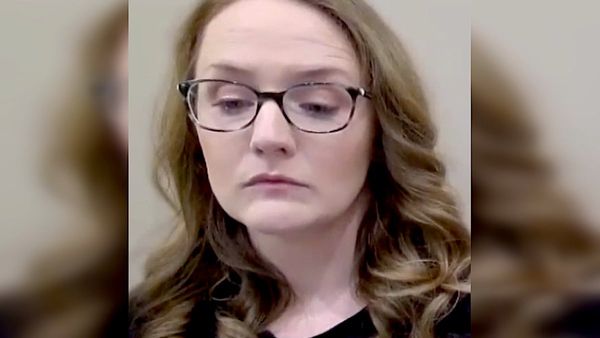
About 14,000 people were turned away from polling stations at May’s local elections because they lacked the right ID, with the overall number denied a vote likely to be considerably higher, the official elections watchdog has said.
The interim study by the Electoral Commission also warned of “concerning” signs that voters with disabilities, people who are unemployed, or those from particular ethnic groups could be disproportionately affected by the policy.
It also said that 4% of people who did not vote said it was because of voter ID – a tally that could run into hundreds of thousands more.
Ministers need to carry out additional work on the system – used for an entire election for the first time in May – to make sure people are not prevented from voting, the report recommended.
Following this year’s Election Act, voters must show a document from a small list of photo IDs for every general or parliamentary byelection across the UK, and for local elections in England.
Campaigners have warned that the policy targeted a barely-existing problem of voter impersonation, and risked particularly affecting people from disadvantaged groups.
The Electoral Commission said data collected at polling stations across 230 councils in England on 4 May found that 0.7% of voters were initially turned away for lacking the correct ID, with 63% of these returning, meaning around 14,000 people were confirmed as being denied a vote.
However, the report said, the actual figure was likely to be higher given that almost 40% of polling stations used “greeters”, tasked with telling voters before they went in that ID was needed.
If a person left before going into the polling station they were not recorded in the data. Polling stations that used greeters showed notably lower average rates of people turned away than those that did not – 0.55% against 0.8%.
The statistics were additionally likely to underestimate the extent of the problem because data from some polling stations was “incomplete or inaccurate”, the report added.
The commission carried out separate polling to determine why some people did not vote, which found that 4% blamed the new ID rules – of these, three-quarters said they lacked the necessary documents, while the remainder disagreed with the policy.
Although the total electorate and turnout for May’s elections have not yet been published, if they are similar to previous years it could mean at least 400,000 people decided not to vote because of the new rules.
While a broader report in September will examine demographic factors, the commission said initial evidence suggested voter ID disproportionately affected people who have disabilities or are unemployed, with some correlation also apparent with factors such as ethnicity.
Craig Westwood, the commission’s head of policy, said that while it was too soon to draw definitive conclusions “some of the emerging evidence is concerning”.
He added: “Elections should be accessible to everyone, so we are working to build a better understanding of the specific experiences of voters at these elections.”
Angela Rayner, Labour’s deputy leader, said: “No legitimate voter should be locked out of democracy but that has been the effect of the Tories’ failed voter ID regulations.
“It’s particularly alarming that under-represented groups look to have been more likely to have denied their say by these new barriers to voting. These strict rules are having a chilling effect on democracy.”
Helen Morgan, the Liberal Democrats’ local government spokesperson, said: “It looks like a transparent attempt at voter suppression by Conservative ministers who are desperate to stop people from holding them to account by any means possible.”
A spokesperson for the Department for Levelling Up, Housing and Communities said it welcomed the report, “which shows that the vast majority of voters – 99.75% – were able to cast their vote successfully”. They added: “These encouraging findings are also reflective of the confidence we always had in the ability of local authorities to implement these changes while continuing to deliver our elections robustly and securely.”







